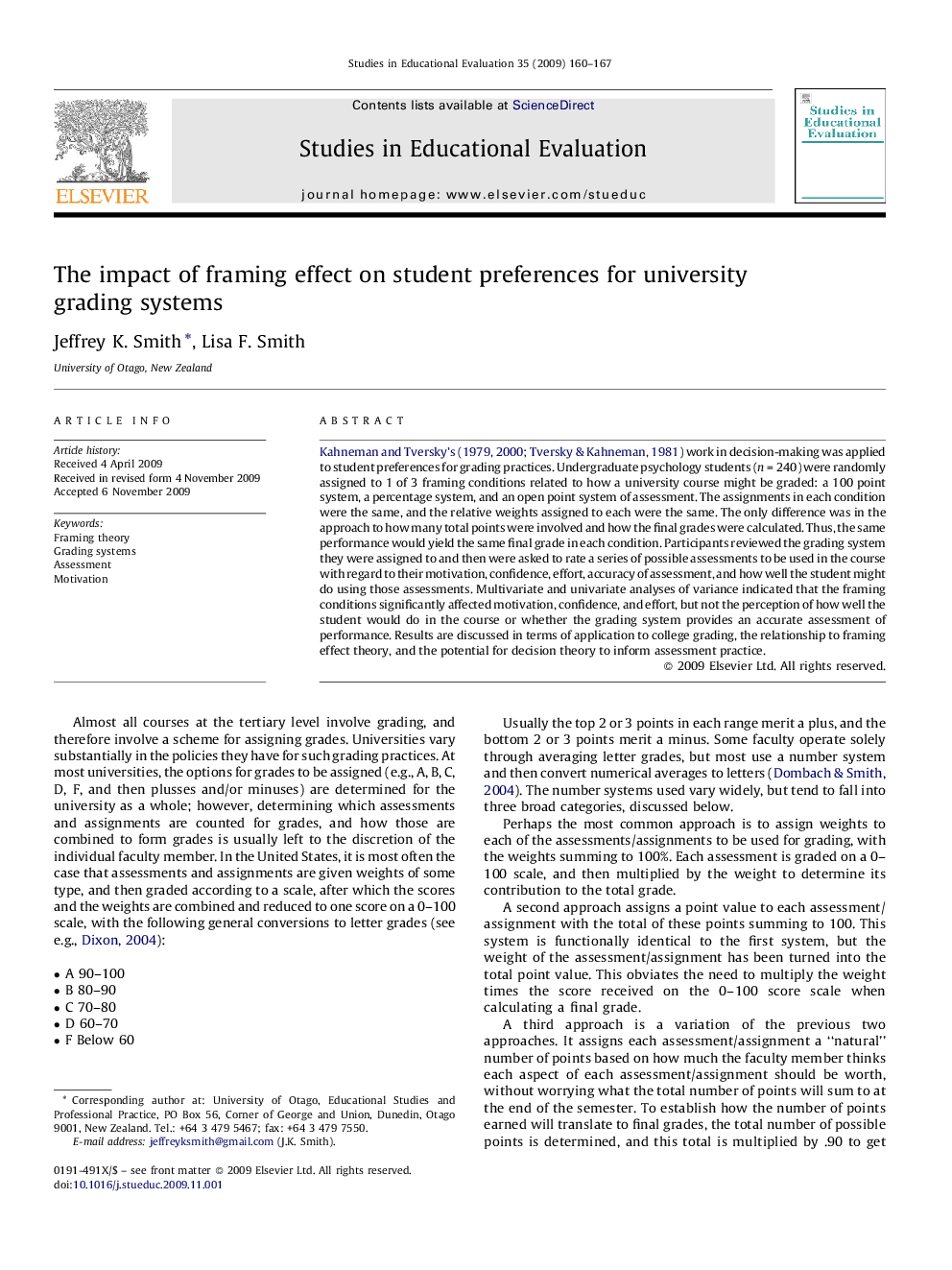| کد مقاله | کد نشریه | سال انتشار | مقاله انگلیسی | نسخه تمام متن |
|---|---|---|---|---|
| 372800 | 622153 | 2009 | 8 صفحه PDF | دانلود رایگان |

Kahneman and Tversky, 1979, Kahneman and Tversky, 2000 and Tversky and Kahneman, 1981) work in decision-making was applied to student preferences for grading practices. Undergraduate psychology students (n = 240) were randomly assigned to 1 of 3 framing conditions related to how a university course might be graded: a 100 point system, a percentage system, and an open point system of assessment. The assignments in each condition were the same, and the relative weights assigned to each were the same. The only difference was in the approach to how many total points were involved and how the final grades were calculated. Thus, the same performance would yield the same final grade in each condition. Participants reviewed the grading system they were assigned to and then were asked to rate a series of possible assessments to be used in the course with regard to their motivation, confidence, effort, accuracy of assessment, and how well the student might do using those assessments. Multivariate and univariate analyses of variance indicated that the framing conditions significantly affected motivation, confidence, and effort, but not the perception of how well the student would do in the course or whether the grading system provides an accurate assessment of performance. Results are discussed in terms of application to college grading, the relationship to framing effect theory, and the potential for decision theory to inform assessment practice.
Journal: Studies in Educational Evaluation - Volume 35, Issue 4, December 2009, Pages 160–167